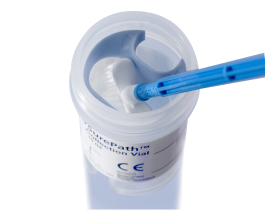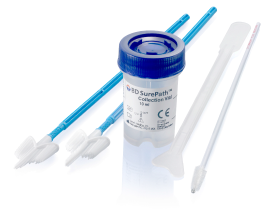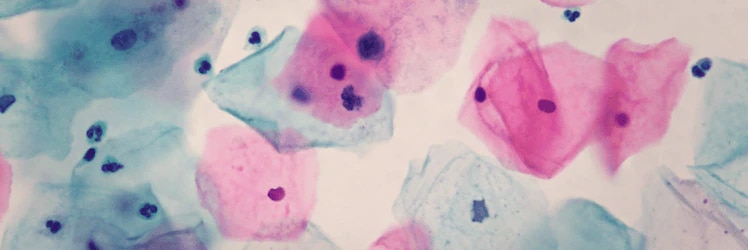The BD SurePath™ liquid-based Pap test provides advantages over conventional Pap smears and other liquid-based cytology (LBC) tests, resulting in greater disease detection.
BD SurePath™ liquid-based Pap test
Our BD SurePath™ brand defines a liquid-based Pap test that improves disease detection.



- Overview
- Products & Accessories
- EIFU & Resources
- Why a liquid-based Pap test
When used with the BD Totalys™ system, the BD SurePath™ barcodes allow positive sample identification (PSID) from collection through cytological and molecular testing, providing greater confidence in results.
BD supports the healthcare industry with market-leading products and services that aim to improve care while lowering costs. We host and take part in events that excel in advancing the world of health™.
Download the BD SurePath™ liquid-based Pap test brochure
Liquid-based cytology (LBC) is a different way to do the Pap test. Developed in the 1990s, this method presents the following differences compared to the conventional Pap test, resulting in increased sensitivity:1
Sample collection and transfer
In the conventional Pap test, the cells are collected and smeared directly onto glass slides, and they need to be fixed immediately; usually, using a spray fixative. The problems with this approach are that not all cells are transferred onto the slides, the cells are not in a single layer, the slides can be broken during transportation and the cells can be damaged until they arrive at the lab. In LBC, the cells are placed into a vial with a preservative, which preserves them for weeks and protects them from damage during transport to the lab. The slide, with the cells in a single layer, is prepared in the lab and not by the doctor or nurse.
Sample adequacy
In the conventional Pap test, samples with a lot of blood, mucus and inflammatory cells are typically considered 'unsatisfactory for interpretation' and, as a result, patients are often recalled.
Slide clarity
Conventional slides do not feature a clear background or organize cells in a single layer. These limitations make finding abnormalities harder, which can impact the accuracy of results.
Flexibility
With the conventional Pap test, additional molecular and biomarker tests cannot be run. The ability to run such tests is important in today's environment with evolving guidelines.
- Nance KV. Evolution of Pap testing at a community hospital: a 10-year experience. Diagn CytoPathol. 2007;35(3):148-153.








